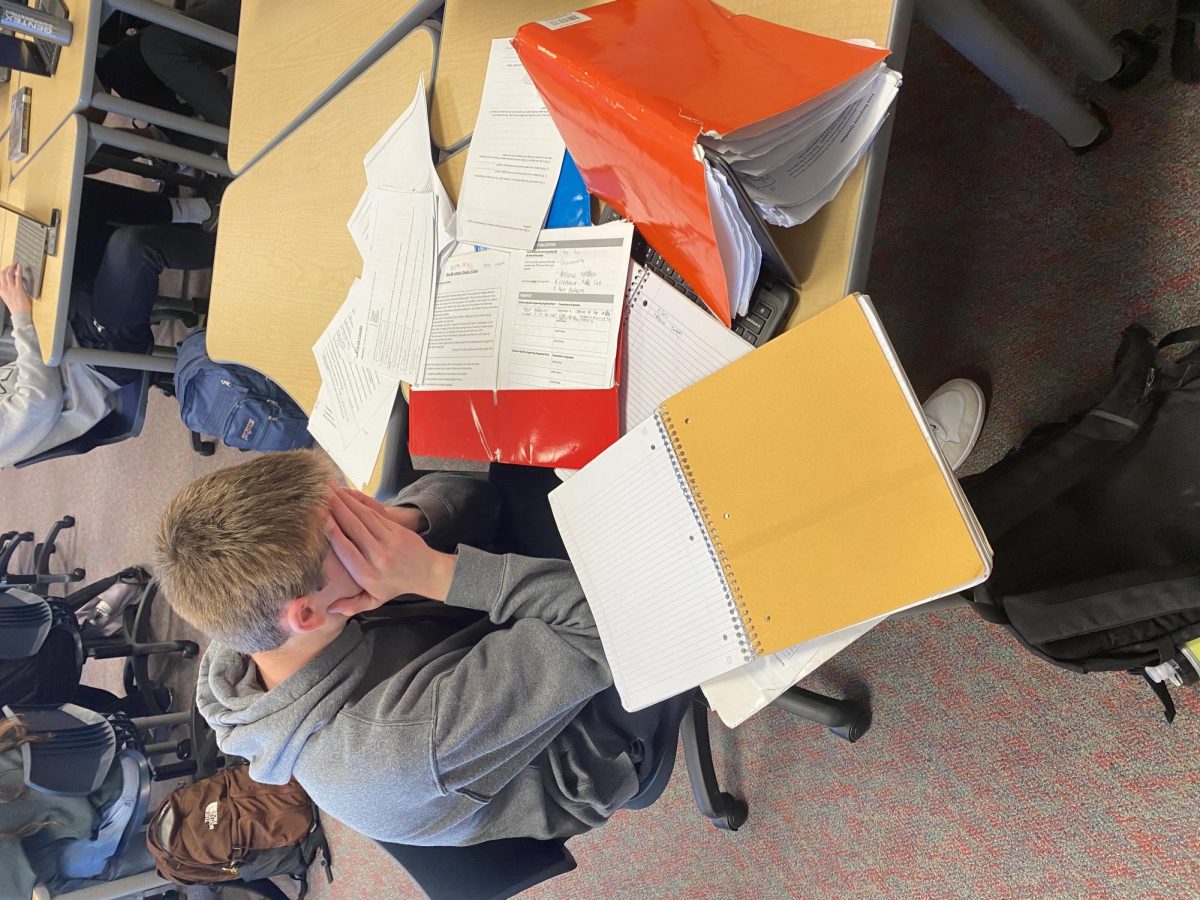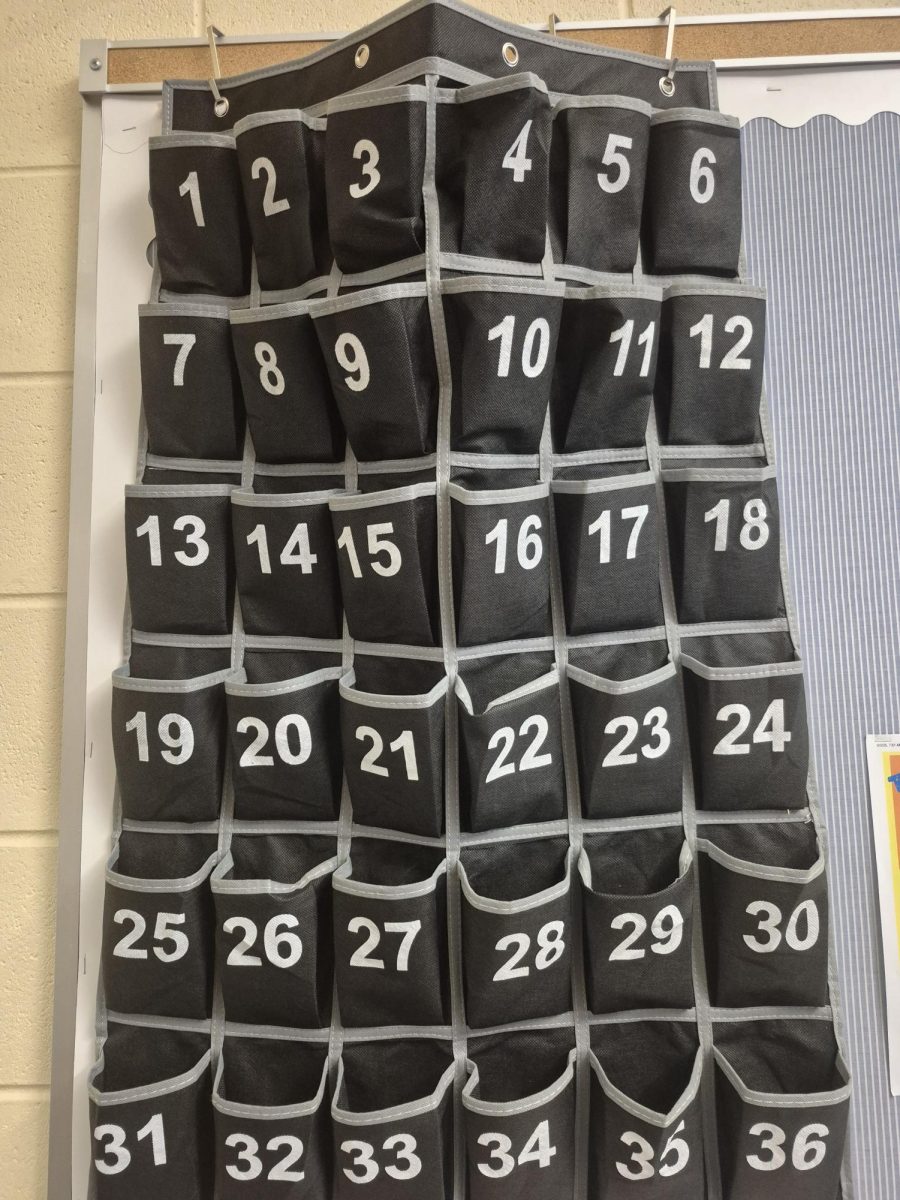The first all-nighter is something a high school student doesn’t forget. It’s a rite of passage. College freshman Eva Sampedro remembers hers like it was yesterday. Her first was for an AP U.S. History class. She realized she needed to lock in the day before “ I realized (I had procrastinated too much) in class the day before the test.. I realized if I didn’t lock in tonight I would be screwed.” After school, Sampedro remembers locking herself in her room with a “bunch of brown shaken espressos from Starbucks.” And there is the start of the all-nighter.
Procrastination spreads a lot farther than in Sampedro’s Starbucks-littered bedroom. It’s a countrywide problem as students all over the country put off doing work until the last minute. Instructor Kevin Klassen said “I have seen an uptick in hurried assignments and past due [assignments] in recent years.” His explanation is, “Poor planning and not making school work a priority… deadlines don’t mean anything.”
This poor planning and not making the school work a priority is not always related to the success of the student. Chloe Weiss, a senior at Black River Public School and class of 2029 at Roosevelt University, often procrastinates her work. She said,” I needed a math credit so I had to take a first-semester pre-calc exam and learned everything for the exam in 30 hours.” She also “procrastinated my AP Lit 1000-word research paper til the night before and got it done.” Weiss ended up passing the class and finishing the essay. She continues to procrastinate as she feels “ I work better when I procrastinate.”
Writing a 1000-word essay in one night isn’t an easy task. However, it can be done with much less stress if a good plan is used. A good plan is necessary for a successful school career and often leads to much higher quality work. Notre Dame Freshman Daniela Adrian credits her goal-setting strategy with her success. According to Dr. Sharon Saline, a psychologist with over 30 years of experience, a healthy goal-setting schedule entails start times, location of studying, and the materials needed for the schoolwork.
Weiss as a procrastinator believes that the quality of her work is improved when she procrastinates. Weiss may be in the minority, as most students feel stressed when they procrastinate, and according to the National Institute of Health, stress leads to a decrease in job/school performance.
Teachers can see a definite decrease in quality as people turn in homework late. Instructor Eric Wilkinson said, “ There is a decrease in quality with procrastinated work compared to planned out work.” Wilkinson also added “ When I see plagiarized or AI work it’s often due to procrastination and stress from this procrastination. This hurried work is often done late even if it is less work to spread the workout.
Psychology can explain the actions of the procrastinators as procrastination is often due to the fear of failure not being lazy. Larry Deleon the AP Psychology instructor at West Ottawa talked about this as the reason for procrastination “ It [procrastination] is often about avoiding negative emotions — not the task itself. People delay tasks to avoid a fear of failure or because they have self-doubt. Also if a task is boring, difficult, or lacks meaning, the brain flags it as unpleasant. So we naturally avoid it.”
This principle is backed up by Soph. Boston Wilkinson, a self-proclaimed procrastinator, said, “I don’t procrastinate running though.” Running is something Wilkinson loves. Since he feels confident in his running abilities the motivation to run isn’t as hard to find as the motivation to finish an AP Lang packet is for him.
Setting goals is a daunting task for most students as that requires a great deal of thought and self-accountability. Psychologists such as Jeffery Bernstein recommend a strategy called chunking. Chunking is breaking goals and tasks into smaller “chunks” which makes the work seem much more achievable and leads to a more confident approach and halts the tendency to procrastinate a long assignment.







